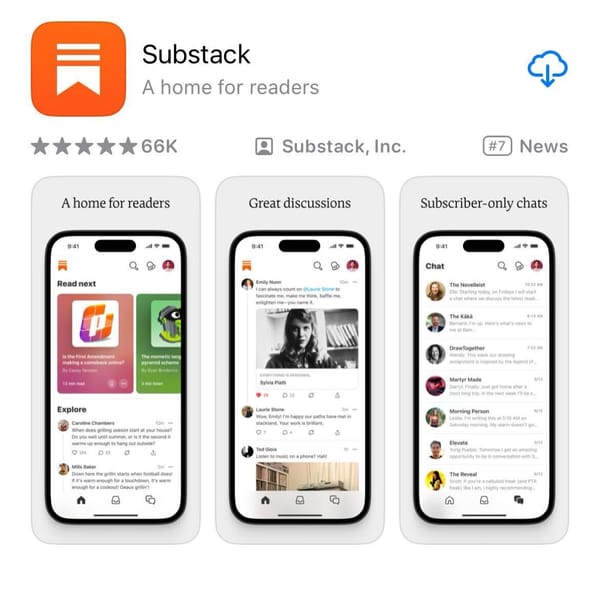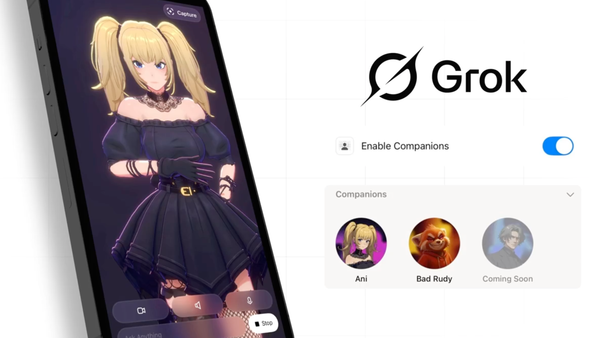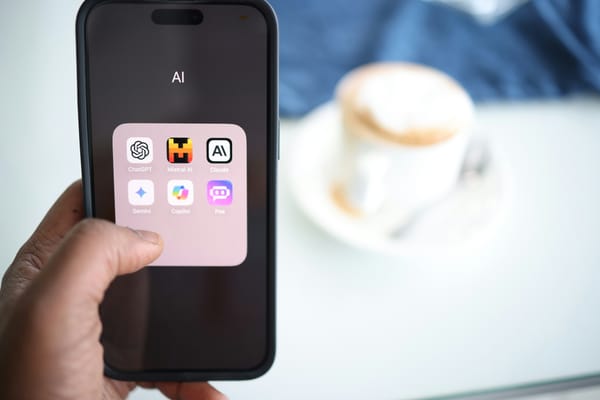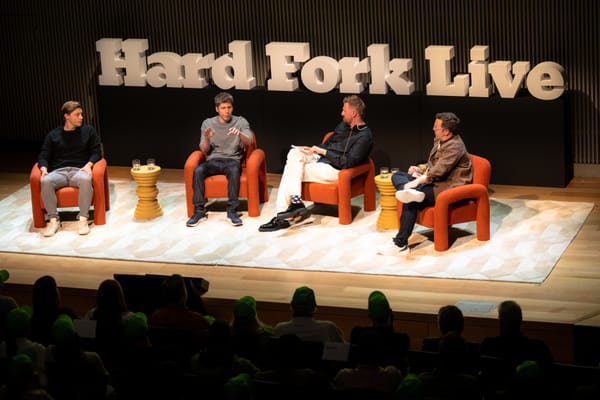Why BeReal is breaking out
Creative constraints + Instagram angst = success. PLUS: A judge sides with Twitter over Musk
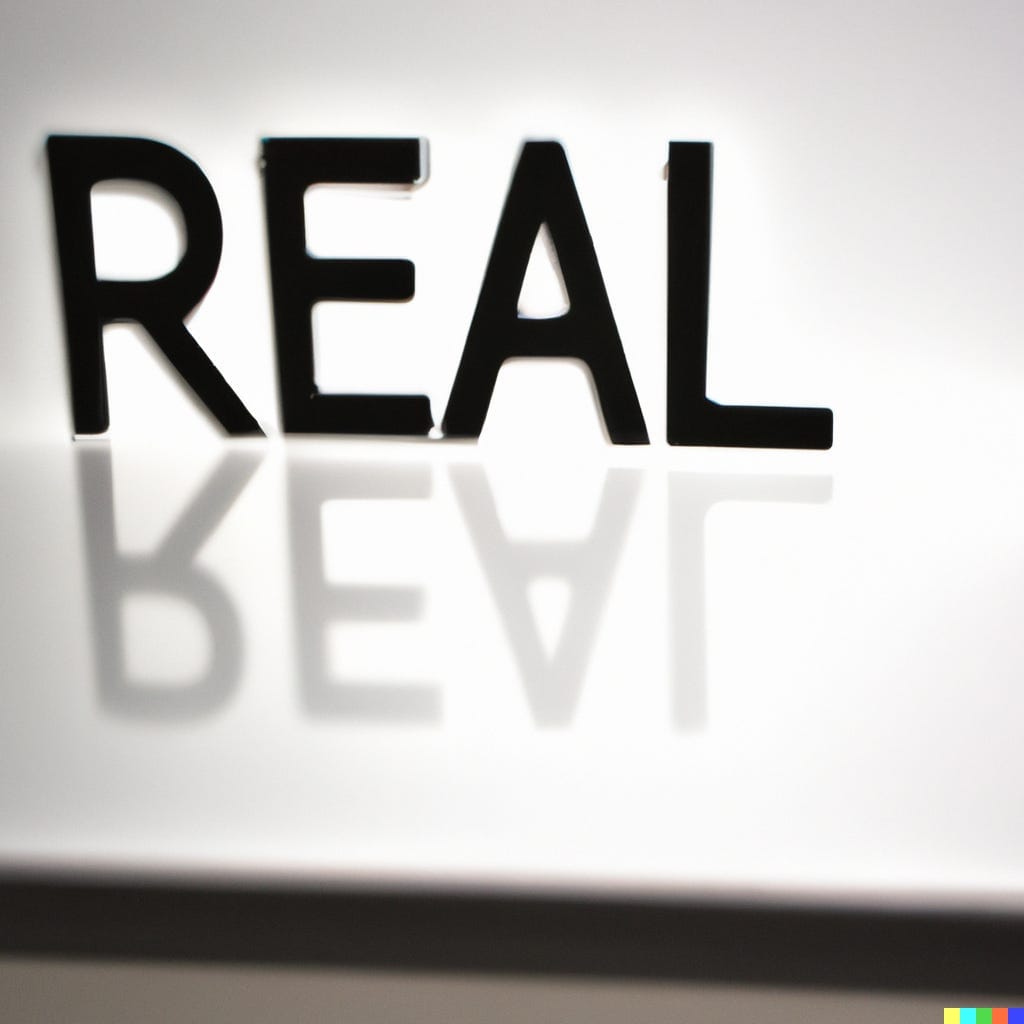
I.
Today let’s talk about a social network that is starting to break through after two years of slow climbing. It’s called BeReal, and it combines nostalgia for social apps that came before with an anxiety about the world those apps created. While it’s impossible to say how big it could grow — or how long it will last — for the moment, BeReal is generating legitimate enthusiasm among TikTokers, Twitter addicts, and college students.
Founded in January 2020 by the French developer Alexis Barreyat, BeReal is a photo sharing app for iOS and Android. Every day at a random time that varies by country, the app sends out a push notification — ⚠️ Time to BeReal. ⚠️ — and users have two minutes to take their pictures. The camera snaps a selfie and a rear-facing photo simultaneously, in a fashion reminiscent of the mid-2010s app Frontback. If you post after the two minutes expire, your photos are marked as “late”; you can’t view your friends’ posts unless you post first. (The post-to-view gimmick has also been used before; I remember when Facebook used it for Slingshot, one of its Snapchat clones.)
It’s a fairly unassuming set of features, but it’s resonating. On Monday, BeReal became the No. 1 free app in the iOS App Store, and remains there today. Market research firm Sensor Tower estimates that it has now been installed 20 million times; another firm, Apptopia, estimates its total downloads at 29.5 million, a spokesman told me. About 333,000 people downloaded BeReal on Sunday alone, Apptopia said.
But BeReal is no overnight success. Eighteen months after it was founded, and amidst some traction with college students, Andreessen Horowitz and Accel led a $30 million round in the company, Newcomer reported at the time. Growth spiked earlier this year as young people began discussing the app heavily on TikTok, with many posts about BeReal garnering half a million likes or more.
More recently, that enthusiasm has begun to spill over to Twitter, where BeReal jokes have begun getting significant engagement. Like this one, imagining BeReal on 9/11:
Sir, it’s ⚠️Time to BeReal⚠️
— olive (@WellbutrinXR) 1:27 PM ∙ Jul 14, 2022
Or this one, an imagined BeReal post at the end of Call Me By Your Name.
it’s time to ⚠️BeReal⚠️
— it's me sally darr (@sallydarr) 1:44 AM ∙ Jul 18, 2022
I don’t think you can understate the value of those yellow caution emoji in distinguishing the brand; they make every tweet about BeReal at least 30 percent funnier than it would otherwise be. For example:
[during sex] omg babe it’s time to ⚠️BeReal⚠️
— chag (@TheChadYoumans) 10:21 PM ∙ Jul 16, 2022
Anyway, investors have noticed all the attention. In May, Insider reported that BeReal is raising a fresh $85 million in capital, led by Facebook investor Yuri Milner's DST Global, that would value the company at $600 million. That’s a significant milestone for a company with no revenue at a time when venture capitalists are becoming much more cautious.
II.
What kind of business does BeReal hope to be? I’d love to ask Barreyat, but the company told me he’s not doing interviews at the moment. Instead, they sent along a two-page fact sheet laying out the company’s back story and basic ambitions.
BeReal is “a candid and fun place for people to share their lives with friends,” the company said. “We want to make people feel good about themselves and their lives. We want an alternative to addictive social networks fueling social comparison and portraying life with the goal of amassing influence.”
The fact sheet ends with a section labeled “⚠️ WARNING ⚠️” which advertises, among other things, that “BeReal can be addictive,” “BeReal will frustrate you,” and “BeReal won’t make you famous.” (“If you want to become an influencer you can stay on TikTok or Instagram,” the company adds; I can only imagine how withering that must have sounded in the original French.
Why is all this resonating? On one level, BeReal is simply applying what we have learned about kickstarting new social networks over the past two decades. A creative constraint is essential — think Twitter’s 140 characters, or Vine’s 6-second loops — and BeReal’s two-minute countdown timer has inspired similar ingenuity. The company’s early focus on making inroads with college students is also straight out of the growth marketing handbook.
BeReal is also nostalgic, in the way that every new social network is nostalgic: yearning for a time when only your closest friends were on it, when you felt free to be a little more authentically yourself. That feeling, combined with the pride in being an early adopter of the next big thing, can take a new network a long way.
At the same time, I think all of this undersells just how weird BeReal can be. Your individual experience may vary — I’ve been out of college a long time, and most of my friends on BeReal seem never to leave their houses — but I don’t think I’ve ever seen such a mundane collection of media in my entire life as I have while browsing BeReal.
Here is a friend typing on a laptop. Here is a friend feeding his dog. Here is a friend staring at a wall of faces on Zoom.
The old joke about Twitter is that it was a bunch of people posting about what they were having for breakfast. In 2022 people are posting their breakfast on BeReal, and there is no sense in which it is meant to be a joke.
The mundanity is intentional, of course. That two-minute time limit arriving randomly throughout the day is meant to discourage you from rigging up your ring light and capturing yourself from the perfect angle — though of course people are making good jokes about doing just that.
One friend who was an early adopter of BeReal told me that ugliness is the heart of the app’s appeal. He has accepted fewer than five friend requests, he said, for fear that the app would become Instagram stories all over again. “I love how shitty the content is,” he told me of his BeReal feed. “The key ingredient is adding people you’re happy to look shitty in front of.”
That makes sense to me, though I must say that I rarely even glance at what my friends are posting — by now I’ve seen all the rooms of their homes and am bored by them. And so instead I simply post my own shitty content, elated for the rare days when the notification arrives when I’m not just sitting in my office chair typing.
There are other theories about why BeReal is taking off now. It seems notable that the app is on the rise at the same time I’m seeing more and more viral angst about what Instagram is becoming. Something like this, for example, seems to pop up once a week now:
The new Instagram update really understood what I was looking for:
— Meg Watson (@msmegwatson) 12:33 AM ∙ Jul 14, 2022
- none of my friends’ content
- reposted TikToks from meme accounts I do not follow
- 100x more ads
- everything played at full volume against my will
When Snapchat was ascendant, Instagram went all-in on becoming the app to see what your close friends were doing. But now TikTok is dominant, and so the app is transforming into a feed of recommended posts with affiliate links. And so BeReal has a growth opportunity.
Meanwhile, Garbage Day’s Ryan Broderick argues BeReal is “part of the same trend as Wordle.” “The simultaneous push alert and time limit to post offers a brief shared online experience among a very fractured social web,” he tweeted. The Washington Post’s Taylor Lorenz agreed.
I think Broderick is right that the hint of a universal experience — everyone posting exactly what they’re doing at 4:31PM, or whenever — has authentic appeal. HQ Trivia, which enjoyed significant popularity a few years back, used a similar trick: inviting everyone to play a trivia game at the same time every day. Apps that attempt to replicate the logic of appointment television keep finding success.
It’s also possible to overstate the case there, though: HQ Trivia flamed out almost as soon as it became popular. And while the idea of everyone posting BeReals at the same time is fun in theory, in practice most of my friends post late — and I rarely even browse their posts anyway.
So where does BeReal go from here? I’ve written here before about my pop-up restaurant theory of social networking:
Every year or so, a promising new social network bubbles up to the surface. You can probably name the biggest of these: Mastodon, Peach, Ello. I’ve come to think of them as pop-up restaurants. Their arrival in the neighborhood stirs momentary excitement among the early-adopter crowd, who enjoy the novelty of the experience and the sensation of being first. But pop-up restaurants are not built to last, and a few weeks later everyone goes back to eating Chipotle.
The occasion for writing that post was the temporary rise of Vero, which also faded away more or less immediately. And BeReal seems to hit a lot of the same boxes that those apps did: remixing a few things you’ve seen before with a few things you haven’t, having a breakout moment, raising some money, and hoping for the best.
Make no mistake, though: the novelty of that two-minute timer will fade, and will fade sooner than anyone at BeReal will hope. And so the developers must race to keep shipping — to build out the feature set, and to fix the app’s many bugs — while their extremely fickle users are still paying attention. It’s an extremely tough challenge, as Clubhouse — the last pop-up social network to briefly break out — has learned over and over again since interest in it peaked.
And just to really underscore the challenge: even if BeReal succeeds, it’s easy to imagine Instagram, Snapchat, and others cloning its core mechanic with ease. You’ll know BeReal is still a threat if, six months from now, you get a push notification that reads “⚠️ It’s Instagram O’Clock ⚠️.”
In the meantime, though, I’m enjoying my new daily distraction. I’m adding only friends who I’m happy to look shitty in front of. It would be too much to say that I’m being real. But whatever I’m doing on this app, for the moment I’m enjoying it.
Musk reads
A judge ruled that Twitter’s lawsuit against Elon Musk will receive a four-day trial in October. That’s a win for Twitter, which is trying to get Musk to complete the $44 billion agreement that he signed as quickly as possible. And it’s a loss for Musk, who hoped to punt the case into next year, as a precursor to nuking it from orbit.
Elizabeth Lopatto listened in on the hearing for The Verge:
In court, Twitter’s counsel said that Musk’s conduct was “inexcusable.” Musk has held up an employee retention plan, and is engaging in “needless value destruction.” In response, Musk’s lawyers suggested that Twitter was giving Musk the run-around with bot data. Both teams agreed that Musk’s team has run millions of queries on Twitter’s firehose, a real-time feed of Tweets as they are sent. Musk’s lawyers also indicated The New York Times got a copy of Twitter’s lawsuit before they did.
After a 10-minute recess, McCormick said that a delay threatened irreparable harm to Twitter. Though an October court date is a quick turn-around, McCormick indicated she was confident the teams of lawyers would rise to the occasion.
I also listened in on the call, and was struck anew by the weakness of Musk’s case. I think the judge was, too, given that she ruled in less than the time it takes me to eat a sandwich. If this is any indication of how the trial is going to go, Elon Musk could be in for a rough October.
Governing
- A look at how the Big Lie and “Stop the Steal” took over the Republican party, extending far beyond social networks to become an article of faith among up-and-coming elected officials. “In 17 of the 27 states holding elections this year for secretary of state — the top elections officer in 24 states — at least one Republican candidate is running on the claim that the 2020 election was illegitimate.” (Charles Homans / New York Times)
- Brazilian President Jair Bolsonaro gathered foreign diplomats to warn that the country’s voting systems may be “rigged,” ahead of an election he is expected to lose. (André Spigariol and Jack Nicas / New York Times)
- Amazon sued the administrators of more than 10,000 Facebook groups that distribute cash and merchandise to people who agree to write phony product reviews. (Taylor Hatmaker / TechCrunch)
- Apple agreed to pay $50 million to settle a lawsuit over the disastrous “butterfly” keyboards that plagued MacBooks from 2015 to 2019. (Jonathan Stempel / Reuters)
- Google received 5,764 “geofence” warrants between 2018 and 2020 from police in the 10 states that have banned abortion so far, highlighting some of the risks that people will face when seeking abortion care. (Alfred Ng / Politico)
- Twitter labeled two transphobic tweets from Rep. Marjorie Taylor Greene as hateful but declined to remove them, saying that they are in the public interest. (Ina Fried / Axios)
Industry
- Google began publicly testing its new augmented reality glasses, which are focused on “assistive uses” including translation, transcription, and navigation. (Scott Stein / CNET)
- Google will allow developers of non-gaming apps to offer alternative billing systems for in-app purchases for 27 European countries — but will only lower their costs a paltry 3 percent. (Ivan Mehta / TechCrunch)
- YouTube signed a partnership with Shopify to let creators more easily feature products across their channels. This post originally said “Spotify.” Sorry! (Todd Spangler / Variety)
- Meta is shifting resources away from its news tab and Bulletin newsletter platform toward other, more profitable aspects of the creator economy. (Jessica Toonkel and Keach Hagey / Wall Street Journal)
- Meta reported slightly higher numbers of Black, Hispanic, multiracial and Asian workers in its most recent diversity report, which the company attributed to the rise of remote work. (Naomi Nix / Washington Post)
- Instagram rolled out a new searchable map that allows users to explore popular locations and filter them by category. (Aisha Malik / TechCrunch)
- TikTok appeared to lay off a small number of employees, with warnings that more may be on the horizon. (Chris Stokel-Walker / Wired)
- ByteDance will consider designing its own chips after failing to find suppliers that meet its requirements, the company said. (Arjun Kharpal / CNBC)
- Microsoft announced Viva Engage, which sounds like a fiber supplement but is actually a Facebook clone for users of its Teams collaboration software. (Tom Warren / The Verge)
- A look at Netflix’s efforts to franchise more of its original properties into Star Wars-like universes, starting with Stranger Things and Squid Games. (Dawn Chmielewski and Lisa Richwine)
- Amazon redesigned Prime Video for the first time in years, making it look more like Netflix. (Chris Welch / The Verge)
Those good tweets
“How late you gonna be there?” Is New York for I’m not coming
— Jared Mark Smith (@jaredinthetrees) 9:07 PM ∙ Jul 18, 2022
I can’t wait to become a high school English teacher and assign my students a short story so unsettling that it will haunt them for the rest of their lives
— Emily Klatt (@emdashklatt) 2:41 AM ∙ Jul 18, 2022
Need to do a better job proof-reading my CV. Seems I've had a paper on there on "undiagnosed STIs among men who have sex with me" for the past year. 👌
— Valerie Earnshaw, PhD (@UDStigmaLab) 6:36 PM ∙ Jul 16, 2022
It’s called soccer now and there’s nothing you can do about it.
— Mr_Cuddlez (33.3%)《TYR》⭐️ (@Mr_Cuddlez88) 8:42 PM ∙ Jul 18, 2022
Talk to me
Send me tips, comments, questions, and your favorite BeReal posts: casey@platformer.news.


